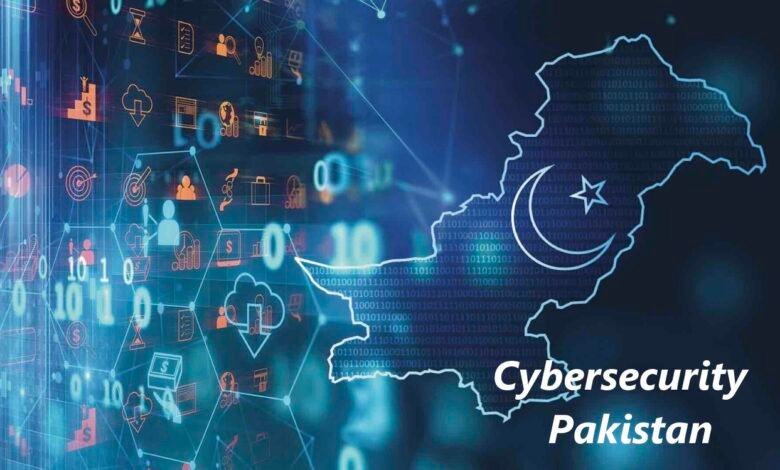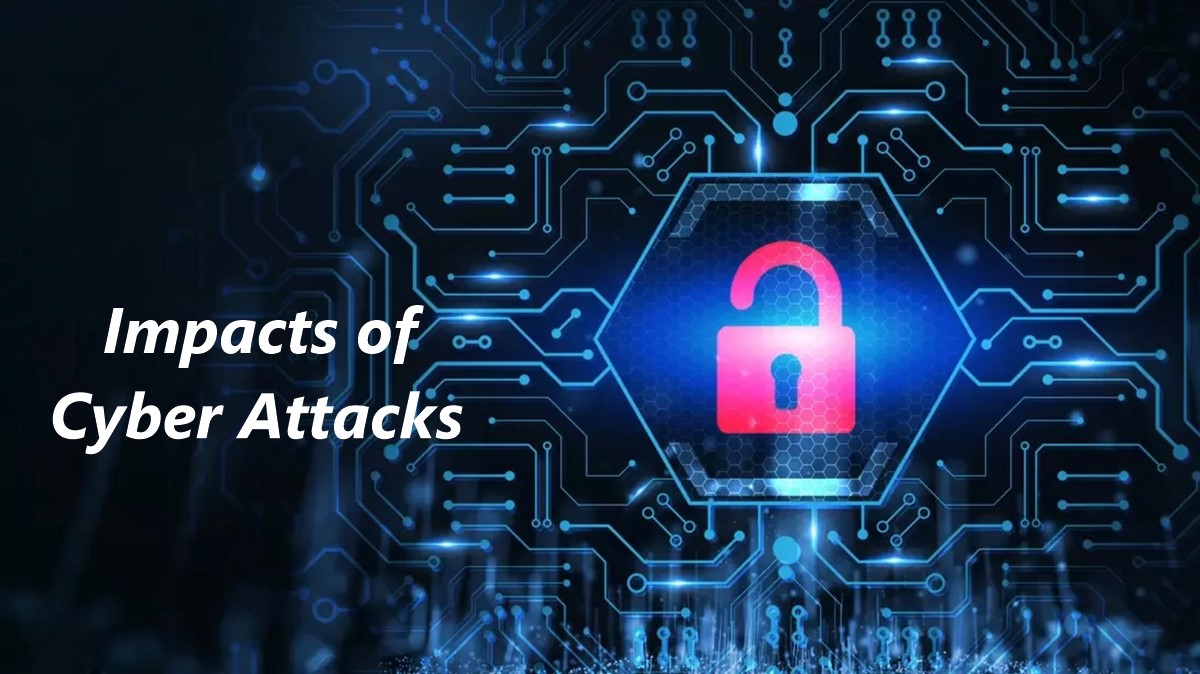The Importance of Cybersecurity in Pakistan 2023

In today’s interconnected world, the importance of cybersecurity cannot be overstated. With the rapid advancement of technology and increasing reliance on digital systems, the need to protect sensitive information and infrastructure from cyber threats has become paramount. This article will delve into the significance of cybersecurity in Pakistan in 2023, highlighting the challenges faced, the impact of cyber attacks, government initiatives, the role of individuals and businesses, the importance of education and training, and the future of cybersecurity in the country.
Cybersecurity refers to the practice of protecting computer systems, networks, and data from unauthorized access, misuse, and damage. It encompasses a range of measures and technologies designed to safeguard information and maintain the integrity and confidentiality of digital assets. In Pakistan, as in many other countries, cybersecurity plays a critical role in ensuring the smooth functioning of various sectors and safeguarding national interests.
Read More: Cybersecurity Best Tips for Remote Workers in 2023
Understanding Cybersecurity
At its core, cybersecurity is about safeguarding information and technology infrastructure from malicious actors and threats. It involves implementing security protocols, employing robust encryption algorithms, and developing strategies to detect, prevent, and mitigate cyber-attacks. The importance of cybersecurity lies in its ability to protect against unauthorized access, data breaches, and other malicious activities that can lead to significant financial losses, reputational damage, and national security concerns.
Cybersecurity Landscape in Pakistan
The cybersecurity landscape in Pakistan faces numerous challenges. The country’s increasing reliance on digital technologies and connectivity has made it vulnerable to various cyber threats. The current state of cybersecurity in Pakistan requires significant improvements to tackle the evolving nature of cyber-attacks effectively. Furthermore, the lack of awareness and inadequate resources dedicated to cybersecurity exacerbates the situation.
Cyber Threats in Pakistan
Pakistan experiences a range of cyber threats that pose risks to individuals, businesses, and the government. Phishing attacks, where cybercriminals deceive individuals into revealing sensitive information, such as passwords or credit card details, are prevalent in Pakistan. These attacks exploit the trust of unsuspecting users through fraudulent emails, websites, or messages.
Another significant cyber threat in Pakistan is the spread of malware and ransomware. Malicious software can infect computer systems, encrypting files and demanding ransom payments for their release. This type of attack can paralyze critical infrastructure, businesses, and individuals, causing financial losses and disrupting daily operations.
Data breaches are also a major concern in Pakistan. With the growing digitization of information, the risk of unauthorized access to sensitive data increases. Data breaches not only result in financial losses but also compromise personal and confidential information, leading to identity theft, fraud, and other serious consequences.
Impacts of Cyber Attacks

The impacts of cyber attacks in Pakistan can be far-reaching. Financial losses incurred due to cyber attacks can cripple businesses and individuals, affecting their economic stability. Moreover, the reputation of organizations can suffer irreparable damage when customer data is compromised, leading to a loss of trust and loyalty.
From a national security perspective, cyber attacks can pose significant threats. Attacks targeting critical infrastructure, government systems, or defense networks can compromise national security and sovereignty. Cyber espionage and cyber warfare are emerging concerns that require robust cybersecurity measures to protect Pakistan’s interests.
Government Initiatives for Cybersecurity
Recognizing the importance of cybersecurity, the government of Pakistan has taken several initiatives to address the challenges and mitigate cyber threats. The National Cybersecurity Policy focuses on strengthening cybersecurity capabilities, promoting collaboration between public and private sectors, and raising awareness about cyber risks and best practices.
Cybersecurity awareness campaigns are being conducted to educate individuals about safe online practices and the potential risks associated with cyber threats. Collaboration with international organizations and sharing best practices and expertise has become crucial in combating cyber threats in a globalized world.
Importance of Personal Cybersecurity
In addition to the government’s efforts, individuals also play a vital role in ensuring cybersecurity. Protecting personal information is essential to prevent identity theft and financial fraud. Individuals should be cautious about sharing sensitive data online, regularly update their passwords, and be aware of phishing attempts and other common cyber scams.
Following safe online practices, such as using secure and updated software, avoiding suspicious links or downloads, and using strong authentication methods, can significantly enhance personal cybersecurity. Individuals must be proactive and stay informed about the latest cyber threats and preventive measures.
Role of Businesses in Cybersecurity

Businesses have a responsibility to protect their customers’ data and secure their digital assets. Implementing robust security measures, such as firewalls, intrusion detection systems, and encryption, is essential to safeguard sensitive information. Regular security audits and vulnerability assessments help identify and address potential weaknesses in systems and networks.
Furthermore, businesses should prioritize employee cybersecurity training and awareness programs to ensure that their workforce understands the importance of cybersecurity and follows best practices. By integrating cybersecurity into their business strategies, organizations can build customer trust, protect their reputation, and minimize the risk of cyber attacks.
Education and Training for Cybersecurity
Promoting education and training programs is crucial to address the shortage of skilled cybersecurity professionals. Cybersecurity offers promising career prospects in Pakistan, and individuals interested in this field can acquire specialized knowledge and skills through relevant academic programs and certifications.
Building a skilled workforce in cybersecurity requires collaboration between educational institutions, industry experts, and the government. Pakistan can keep pace with emerging threats and develop innovative solutions by encouraging research and development in cybersecurity technologies.
Future of Cybersecurity in Pakistan
The future of cybersecurity in Pakistan holds both challenges and opportunities. As technology continues to advance, new threats will emerge, requiring constant adaptation and innovation in cybersecurity strategies. Pakistan needs to invest in research and development, foster public-private partnerships, and create an environment that nurtures cybersecurity talent and encourages entrepreneurship in the cybersecurity sector. This will enable Pakistan to effectively address emerging threats and establish itself as a regional hub for cybersecurity expertise.
Moreover, promoting international collaboration and information sharing will enhance Pakistan’s cybersecurity capabilities. By participating in global cybersecurity initiatives and working closely with other nations, Pakistan can strengthen its defenses, learn from best practices, and contribute to the collective efforts against cyber threats.
Read More: 7 Best Benefits of a Cybersecurity Career Path 2023
Conclusion
The importance of cybersecurity in Pakistan in 2023 cannot be overstated. With the increasing reliance on digital systems and the evolving nature of cyber threats, individuals, businesses, and the government must prioritize cybersecurity measures. By understanding the significance of cybersecurity, implementing robust security protocols, promoting awareness and education, and fostering collaboration, Pakistan can protect its digital infrastructure, safeguard sensitive information, and mitigate the risks associated with cyber-attacks.
FAQs
1. What is the role of cybersecurity in protecting national interests? Cybersecurity plays a critical role in protecting national interests by safeguarding critical infrastructure, government systems, and defense networks from cyber threats. It ensures the sovereignty and security of a nation in an increasingly interconnected world.
2. How can individuals enhance their cybersecurity? Individuals can enhance their cybersecurity by regularly updating passwords, being cautious about sharing sensitive information online, using secure and updated software, and staying informed about the latest cyber threats and preventive measures.
3. What are some common cybersecurity mistakes to avoid? Some common cybersecurity mistakes to avoid include using weak passwords, clicking on suspicious links or attachments, sharing sensitive information with untrusted sources, and neglecting software updates and security patches.
4. Is cybersecurity a growing field in Pakistan? Yes, cybersecurity is a growing field in Pakistan. As the country faces increasing cyber threats, there is a growing demand for skilled cybersecurity professionals to protect digital infrastructure and combat cybercrime.
5. Where can I find resources to learn more about cybersecurity? Various online resources, websites, and educational institutions offer courses, certifications, and materials to learn more about cybersecurity. Some recommended resources include online learning platforms, cybersecurity organizations, and reputable academic institutions offering cybersecurity programs.












One Comment